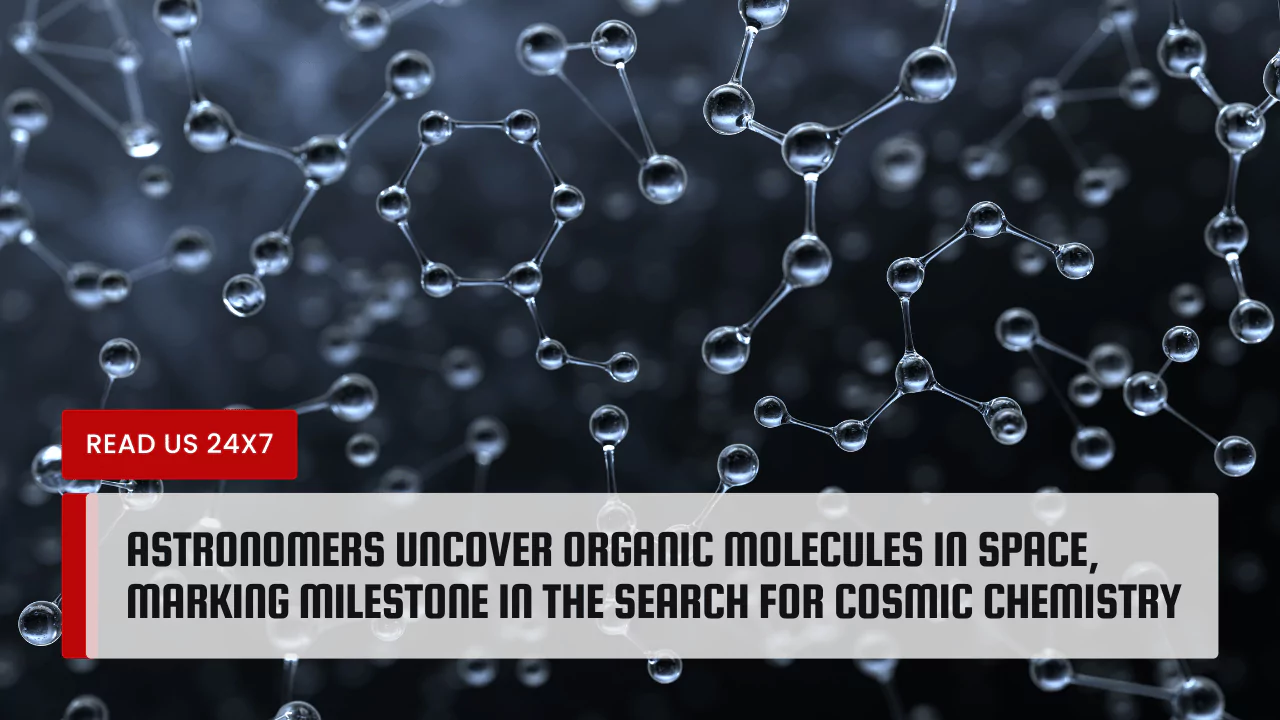Recently, scientists found complex organic molecules in an interstellar cloud. This discovery is important because it helps us understand how life might form in the universe. Researchers detected a molecule called pyrene, which contains carbon. This finding opens new doors in the study of cosmic chemistry.
What Are Organic Molecules?
Organic molecules are substances that mainly contain carbon. They can also have hydrogen, oxygen, nitrogen, and other elements. These molecules are essential for life as we know it. For a long time, scientists believed that certain complex organic molecules could not survive the harsh conditions in space. This new discovery challenges that idea.
The Discovery
The team of scientists at MIT explored the Taurus molecular cloud. This cloud is located about 450 light-years from Earth. They used a radio telescope called the Green Bank Telescope to study the cloud. Instead of detecting pyrene directly, they found a related molecule called 1-cyanopyrene. This second molecule serves as a marker or tracer for pyrene.
1-cyanopyrene is easier to detect with radio telescopes than pyrene itself. By estimating how much 1-cyanopyrene exists, scientists can calculate the amount of pyrene in the cloud. The findings showed that a significant amount of pyrene exists in this cold, dark region of space.
Importance of Pyrene
Why is pyrene so significant? This molecule is part of a large family called polycyclic aromatic hydrocarbons (PAHs). PAHs are known to be abundant in space. They consist of chains of carbon atoms arranged in rings. The presence of such molecules in space raises exciting possibilities for the origin of life.
Scientists believe that the building blocks for life may come from space. When stars and planets form, they can carry these complex organic molecules. These molecules might land on planets like Earth and give rise to life.
Conditions in Space
In space, conditions can be extreme. There is a lot of radiation from stars. This radiation can break down complex molecules. For many years, scientists thought only simple molecules could survive in these harsh conditions. However, pyrene is different.
Research shows that pyrene is tough. It can survive star formation and still remain intact. This discovery suggests that complex molecules could be present when new stars and planets are being made. It offers new insight into how essential compounds for life can form in the universe.
Connections to Earth
Last year, scientists also found pyrene in samples from an asteroid named Ryugu. This asteroid is part of our solar system. The presence of pyrene in both interstellar clouds and asteroids is crucial. It shows that organic molecules exist not only in space but can also arrive on planets like Earth.
When the Earth formed about 4.5 billion years ago, young planets were bombarded by comets and asteroids. These celestial objects carried organic molecules. The arrival of these compounds might have helped kickstart life on Earth.
The Role of Cyanide
One interesting aspect of the discovery involves cyanide. In space, cyanide is quite common. It can react with pyrene to form 1-cyanopyrene. This interaction illustrates how different chemical processes can occur in space. It also highlights the complex chemistry present in interstellar clouds.
Understanding how pyrene and cyanide work together can deepen our knowledge of cosmic chemistry. These reactions may play vital roles in forming other complex molecules that could be important for life.
The Bigger Picture
This discovery is part of a larger story about how life could emerge in the universe. Scientists are slowly piecing together the puzzle. They explore not only planets like Earth but also distant stars and galaxies. Each new piece of evidence adds depth to our understanding of the universe.
The research pushes the idea that life might not be unique to Earth. If complex organic molecules form in multiple areas of space, it suggests other places could be suitable for life. From icy moons to distant planets, the possibilities are exciting and vast.
Future Research
With this new discovery, scientists will continue exploring interstellar space. New telescopes and instruments will help researchers examine other clouds and regions. Understanding how organic molecules survive in space remains an important focus. If scientists can find more complex molecules, it may alter our understanding of life’s origins.
The journey to uncover the mysteries of cosmic chemistry is far from over. Future explorations will keep scientists busy. Each new finding brings us closer to understanding the universe and our place in it.


